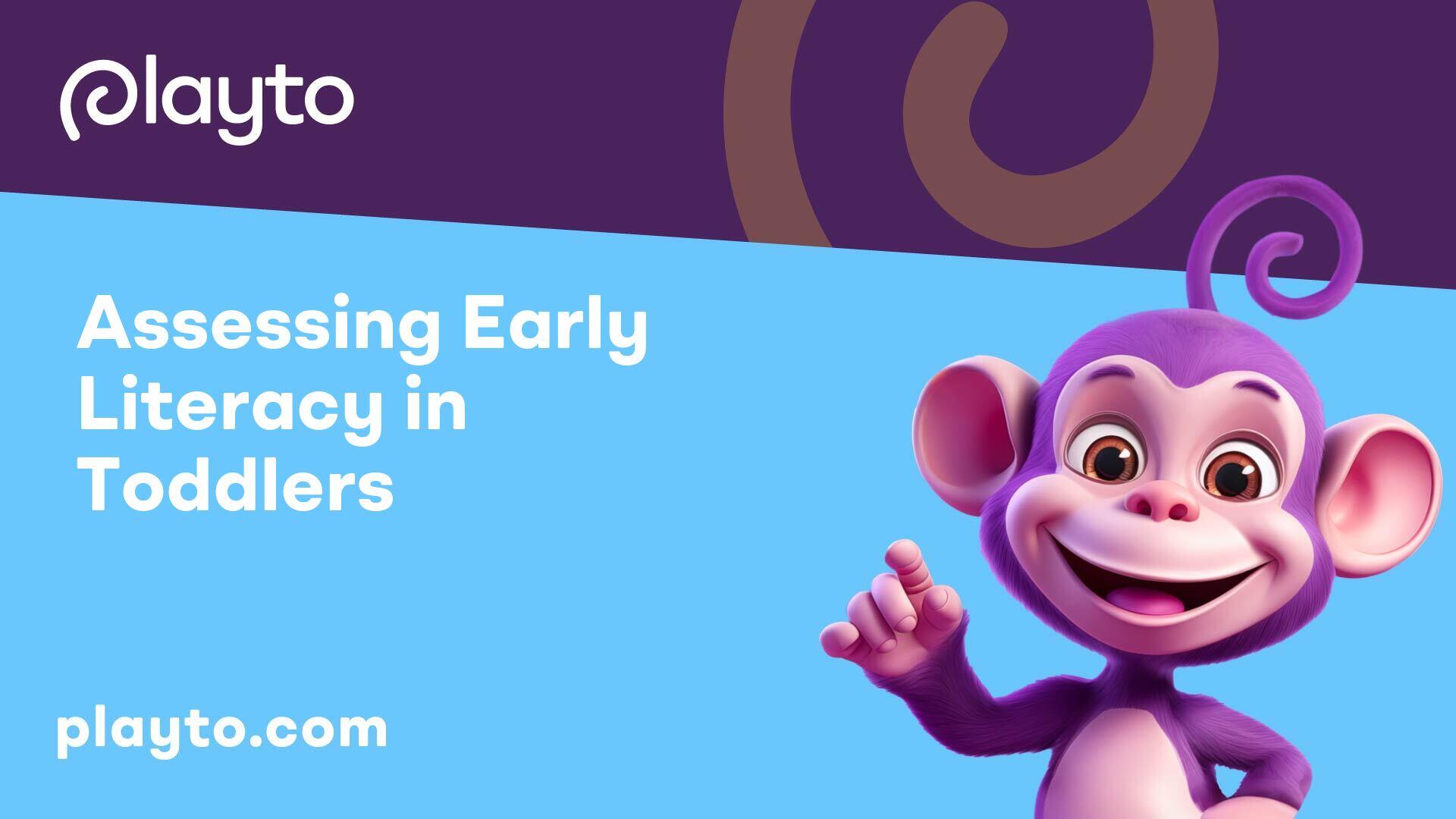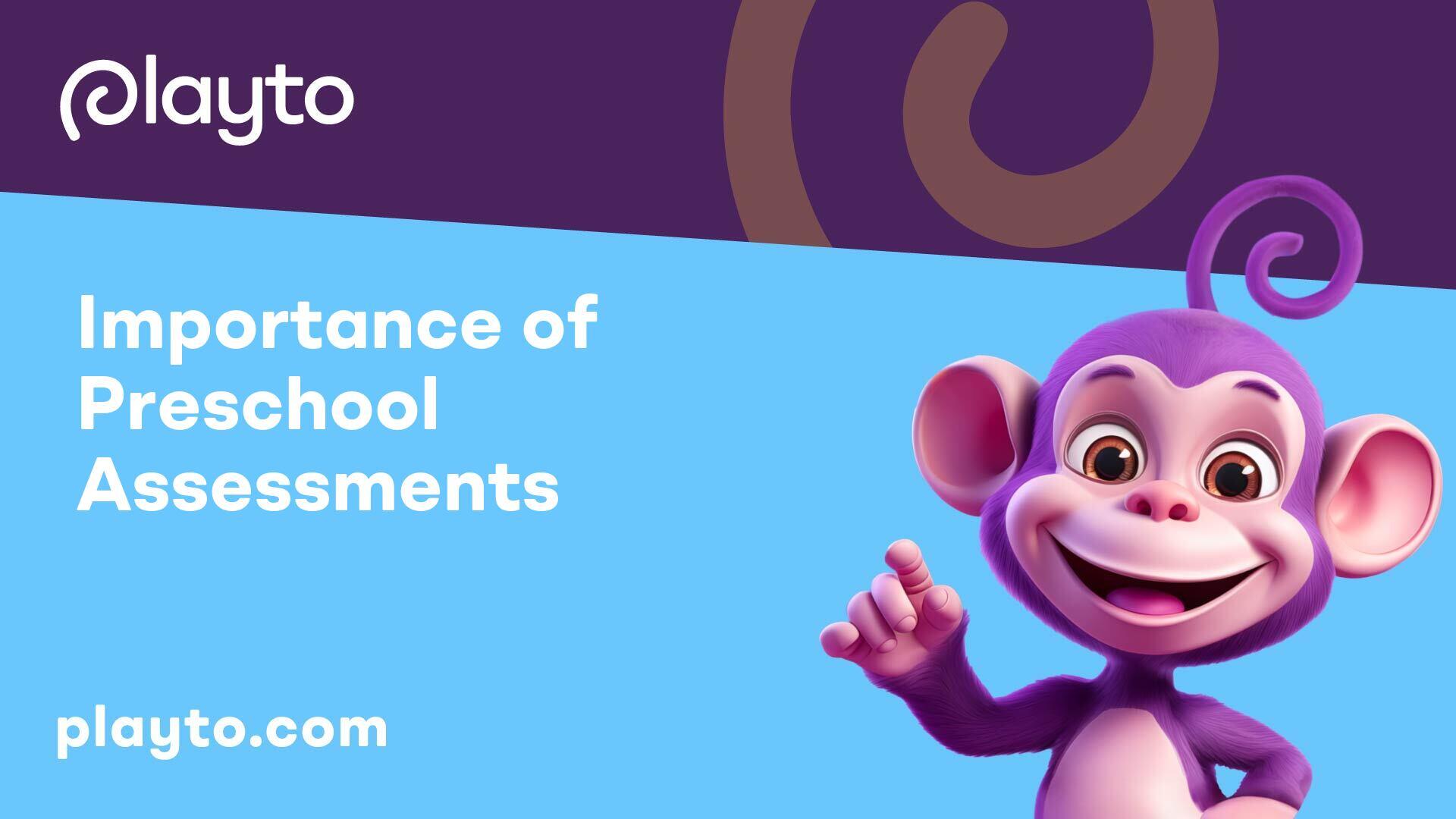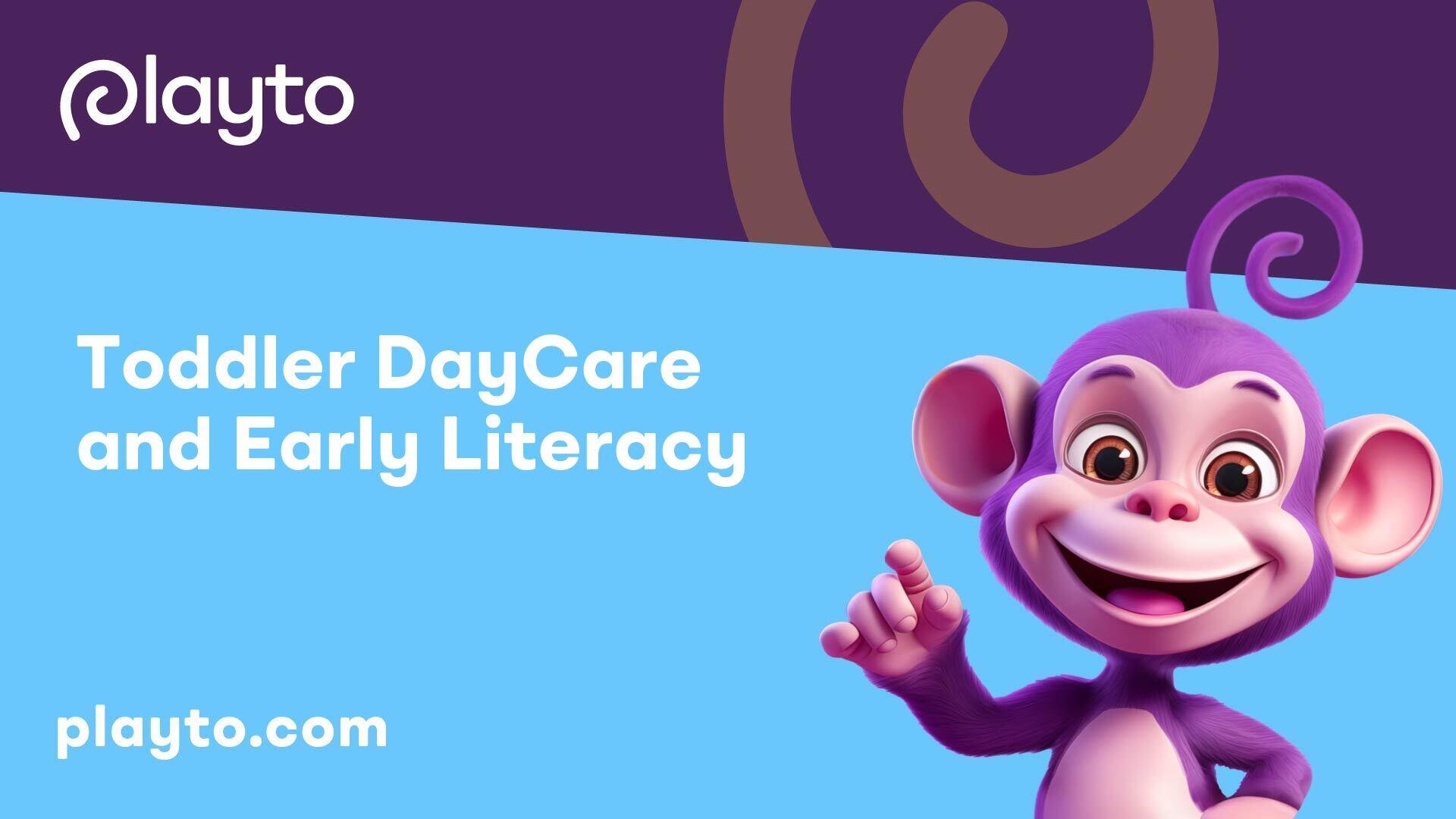
Assessing Early Literacy in Toddlers
When it comes to assessing early literacy in toddlers, understanding the various assessment methods is essential to track their progress effectively. Two primary assessment types used in early childhood education are formative and summative assessments. Additionally, there are specific methods tailored for preschool-aged children.
Formative vs. Summative Assessment
Methods for Preschool Assessments
Educators utilize a combination of formal and informal methods to assess toddlers' early literacy skills and overall development.
Utilizing a range of assessment methods allows educators to tailor instruction to meet the individual needs of each child and ensure that they are progressing effectively in their early literacy development. By implementing effective assessment strategies, early childhood educators can create a supportive and enriching learning environment that fosters the development of crucial literacy skills in toddlers.

Importance of Preschool Assessments
When it comes to toddler daycare and early literacy, the significance of preschool assessments cannot be overstated. These assessments play a vital role in tracking developmental milestones and enhancing teaching strategies, ultimately contributing to the overall growth and development of toddlers.
Tracking Developmental Milestones
Preschool assessments, particularly formative assessments, are essential for monitoring children's physical, cognitive, and social-emotional development. Methods such as observation, samples of children's work like drawings and paintings, one-to-one conversations, and family communication are commonly employed to gather valuable insights into a child's progress.
By tracking developmental milestones through assessments, educators and caregivers can identify areas where a child may need additional support or enrichment. This proactive approach enables early intervention and tailored learning experiences to ensure that each toddler receives the appropriate guidance to reach their full potential.
Enhancing Teaching Strategies
The implementation of preschool assessments not only benefits the individual child but also enhances teaching strategies within daycare settings. By evaluating the effectiveness of teaching methods and curriculum through assessments, educators can make informed decisions about lesson planning and instructional approaches.
Insights gained from preschool assessments help educators tailor their teaching strategies to meet the diverse needs of toddlers. By identifying areas of strength and areas for improvement, teachers can create a supportive and enriching learning environment that fosters holistic growth and development.
Moreover, involving families in the assessment process fosters collaboration between home and daycare, ensuring a cohesive approach to supporting a child's early literacy journey. This collaborative effort contributes to a more effective and impactful preschool experience.
In conclusion, preschool assessments are instrumental in not only tracking developmental milestones but also in enhancing teaching strategies within daycare settings. By incorporating assessments into the educational framework, daycare providers can optimize the learning experience for toddlers, setting a strong foundation for their future academic success and overall well-being.

Developmentally Appropriate Practices
In the realm of toddler daycare and early literacy, developmentally appropriate practices play a crucial role in supporting the individual characteristics of each child and fostering learning across various domains.
Supporting Individual Characteristics
Early childhood educators recognize the significance of supporting the individual characteristics of toddlers in daycare settings. By tailoring teaching strategies to meet the unique needs and interests of each child, educators can create a supportive and inclusive learning environment [3]. This approach emphasizes the importance of recognizing and respecting the diverse abilities, backgrounds, and learning styles of toddlers in daycare.
When supporting individual characteristics, educators may implement a mix of self-directed play, guided play, and direct instruction to enhance children's learning experiences and engagement. This inclusive approach aims to foster a sense of belonging and empowerment among toddlers in daycare, setting the foundation for positive learning outcomes in the early stages of development.
Fostering Learning Across Domains
Fostering learning across domains is another key aspect of developmentally appropriate practices in toddler daycare settings. Teachers play a pivotal role in ensuring that toddlers experience stimulating, engaging, and culturally responsive experiences that promote learning across all areas of development.
By providing a variety of opportunities for exploration and discovery, educators help toddlers in daycare build critical skills in cognitive development, language and literacy, social-emotional growth, and physical well-being. Through a balanced and holistic approach to learning, toddlers are exposed to diverse experiences that support their overall development and prepare them for future educational endeavors.
Incorporating developmentally appropriate practices that support individual characteristics and foster learning across domains is essential for creating a nurturing and enriching environment for toddlers in daycare. By embracing the uniqueness of each child and promoting comprehensive learning experiences, educators can lay the groundwork for early literacy skills and lifelong learning success.
Hands-On Learning Benefits
In the realm of toddler daycare and early literacy, hands-on learning plays a vital role in stimulating brain development in young children. This approach engages various areas of the brain, particularly the sensory, motor, and cognitive regions, fostering the formation of robust neural connections and enhancing brain function.
Stimulating Brain Development
Hands-on learning offers a dynamic way for toddlers to actively interact with their environment, encouraging exploration, experimentation, and discovery. This active engagement contributes to the development of critical thinking, problem-solving, and creative thinking skills, laying a solid foundation for future learning endeavors [4].
Research indicates that hands-on learning not only enhances retention and comprehension but also boosts student motivation and engagement. Dr. David Kolb, a prominent theorist, emphasizes the significance of direct experience in optimizing learning outcomes. By immersing toddlers in hands-on activities, daycare facilities can create enriching learning environments that cater to the diverse learning styles of young children.
Resources for Hands-On Learning
To facilitate effective hands-on learning experiences in toddler daycare settings, utilizing the right resources is key. The following resources are considered among the best for hands-on learning in early childhood classrooms:
ResourcesDescriptionClipboards and PaperEncourage toddlers to draw, write, or engage in creative activities, promoting fine motor skills.Measuring ToolsIntroduce concepts of size, quantity, and measurement, aiding in the development of math skills.BooksOffer a variety of stories and information to broaden toddlers' knowledge and language skills.Loose PartsInclude manipulatives like blocks, shapes, and puzzles to enhance creativity and problem-solving.Classroom CameraEnable observation, documentation, and creation of visual records, fostering observational skills.
These resources not only enhance the hands-on learning experiences of toddlers but also promote interactive and engaging educational practices within the daycare environment. By incorporating these tools effectively, daycare providers can create rich learning opportunities that spark curiosity and enthusiasm in young learners.
Transition to School Readiness
The transition to school readiness is a crucial phase in a toddler's development that lays the foundation for future academic success. Early language and literacy skills play a pivotal role in preparing toddlers for the structured learning environment of school. Supporting these skills not only enhances cognitive development but also fosters a lifelong love for learning.
Early Language and Literacy Skills
Early literacy skills, such as alphabet knowledge, phonological awareness, and print awareness, are key indicators of later reading achievement. Research indicates that these skills can be cultivated in preschool-aged children, including English language learners, even before they have fully developed their English language proficiency.
Engaging toddlers in language-rich activities and exposing them to a variety of books and reading materials can help cultivate a strong foundation in language and literacy. Encouraging oral language development through conversation, storytelling, and vocabulary-building exercises can significantly enhance a child's communication skills and overall literacy readiness.
Supporting Literacy at Home
Parental involvement is crucial in supporting literacy development, especially for toddlers attending daycare for limited hours each week. Parents play a vital role in fostering literacy skills by reading to their children regularly and creating a literacy-rich environment at home.
Reading to children at an early age and allowing them to choose their books can ignite a passion for reading and build confidence in literacy skills. Repeated readings of favorite books can reinforce language patterns and vocabulary, aiding in language acquisition and comprehension skills.
Parents should be encouraged to establish reading routines at home, incorporating storytelling, phonics activities, and interactive reading experiences. By modeling positive reading behaviors and creating a nurturing literacy environment, parents can significantly impact their child's language and literacy development.
Moreover, parental education, income levels, and racial/ethnic backgrounds have been identified as factors influencing children's language learning and literacy exposure. Fostering early literacy skills in toddlers from diverse socioeconomic backgrounds requires tailored strategies that accommodate varying levels of parental engagement and support.
By cultivating early language and literacy skills at home and in daycare settings, toddlers can embark on their educational journey with confidence and enthusiasm, primed for the challenges and opportunities that lie ahead. The collaborative effort between parents and daycare providers is essential in nurturing a love for learning and laying a strong foundation for future academic success.
Parent Involvement in Early Education
Parent involvement plays a significant role in shaping a child's educational journey, particularly during the early years. This section highlights the impact of parent involvement on academic achievement and social functioning.
Impact on Academic Achievement
Research consistently demonstrates the positive correlation between parent involvement and academic achievement. Studies have shown that parent involvement is associated with improvements in various learning-related skills, such as achievement motivation, task persistence, and receptive vocabulary during the preschool and kindergarten years.
Furthermore, active participation of parents in their child's education can lead to the development of consistent disciplinary approaches both at home and in daycare settings. This consistency in expectations and boundaries has been linked to higher academic success in the early grades. By engaging with their child's education, parents can create a supportive environment that nurtures a love for learning and academic growth.
Enhancing Social Functioning
In addition to academic benefits, parent involvement also plays a crucial role in enhancing the social functioning of children. Studies have shown that children with highly involved parents tend to display higher levels of social skills as reported by both parents and teachers.
When parents actively participate in their child's education, it fosters a sense of belonging and support, which positively impacts the child's social interactions and emotional well-being. Consistent and positive involvement from parents can help children build confidence, develop empathy, and navigate social situations more effectively.
Furthermore, enhancements in parent involvement have been linked to improvements in teacher-reported social skills and reductions in behavioral problems among children. By establishing strong partnerships between parents, educators, and daycare providers, children benefit from a holistic approach to their development that nurtures both academic growth and social competence.
Parent involvement in early education not only strengthens the academic foundation of children but also contributes significantly to their social and emotional development. By actively engaging in their child's learning journey, parents create a collaborative environment that sets the stage for long-term educational success and well-rounded social skills.
References
[2]:
[3]:
[4]:
[5]:
[6]:
[7]:
[8]:
